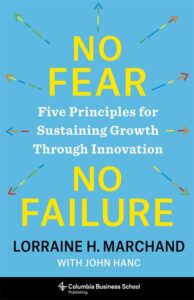 Eric Schultz has been at the forefront of disruptive innovation in technology for 40 years, creating new products, services and companies.
Eric Schultz has been at the forefront of disruptive innovation in technology for 40 years, creating new products, services and companies.
But nothing in his career—in which he has led breakthroughs in computing, smartphones and the mobile internet—compares with this particular moment.
“It is a wildly exciting time,” he says. “Medicine is fast becoming a digital science, and healthcare, a digital industry. There is no shortage of challenges — and an embarrassment of opportunities to do good.”
Underlying this transformation is the mapping of the Human Genome. “That’s driven a lot of innovation and change in medicine and health over the past few decades,” he says. But the vast amounts of biological information now available, especially in gene expression (the activation of the gene) present a challenge. “Gene expression changes from cell to cell, minute to minute,” he says. “Being able to track these changes gives researchers and clinicians a picture of what’s going on in your body, to determine for example, onset and progression of disease, or response to a medicine.”
But the speed, variation and permutations of gene expression are too much for the conventional ways people have analyzed data. “That’s where you need solid AI and machine learning,” he says. “Because there’s so much information.”
Eric co-founded Ocean Genomics to help tackle this problem—and by building effective AI technology, he and his company are now helping researchers to realize more of the potential of “computable biology”. As the company says on its website, the tools provided by Ocean Genomic offers the promise of understanding disease biology, predicting treatment impact, and delivering more effective diagnostics and therapeutics.
While the science of genetics and the technology of AI might seem overwhelming in their complexity, Eric believes that innovators often fail to identify the real problem and often begin committed to their solution. “There’s this idea of first thinking around the problem,” he says. “Looking at it from every aspect. Approaching it as a blank sheet, without bringing in a lot of preconceptions or assumptions.” Otherwise, he says, “you may solve the wrong problem, or fashion a really complex solution, when a simpler solution would have been more effective.”
Congratulations, Eric. That’s the Innovation Mindset in action! Have you got a similar mindset? Are you doing something innovative in your life—with your work? We’d like to hear from you—and we’d love it if you would include a photo of yourself with the book.
